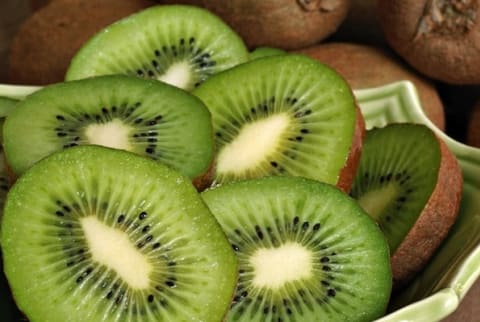
My old housemate was never real big on nutrition. One morning when we were gathered in the kitchen, he pulled a bottle of orange fruit drink out of the fridge, took a swig, and sung praises for the vitamin C he was getting from this beverage.
Once I moved past the immediate shock of seeing someone drink fruit drink (c’mon the stuff is nothing more than watered-down syrup), I explained to him that, contrary to popular belief, just because it contains oranges doesn’t mean it's a good source of vitamin C. I blame those darn orange-flavored vitamin C tablets we used to get as kids. When you’re told something like that when you’re young, it usually sticks.
Oranges do contain this disease-fighting nutrient, but other foods will give you more bang for your bite. These include kiwis, strawberries, broccoli, guava, papaya, red and green capsicum, kale, and brussels sprouts.
Why do we need vitamin C?
Apart from giving your immune system a good ole’ boost and helping ward off colds, vitamin C is also an antioxidant preventing the degradation of substances in the body, and a detoxifier, reducing the toxicity of medications and chemicals. Vitamin C is required for the synthesis of collagen, which is not only great for your skin but is an important structural component of blood vessels, tendons, ligaments, and bone. It also plays an important role in the synthesis of the neurotransmitter, norepinephrine. Neurotransmitters are critical to brain function and are known to affect mood.
Not getting enough?
I’m not really a fan of man-made vitamins and supplements when we have perfectly good, nutrient-laden organic vegetables at our disposal. However, if your diet isn’t up-to-scratch and you need an extra boost of vitamin C, give these a go.
Supplement
In supplement form, vitamin C is often called ascorbic acid. It’s important to get a good quality supplement. Talk to a naturopath or the clever people at your health food store to suss out which one will be best for you. You need to be careful that it’s all-natural and doesn’t contain any synthetic fillers.
Infusion
If a supplement still isn’t enough for you, a vitamin C infusion should do the trick. In this, you take your good self along to a doctor who offers vitamin C infusions and get hooked up to an intravenous drip. Most integrative doctors offer these. Vitamin C IVs supply over 1,000 micromol/liter and reach the blood stream 25% faster than taking vitamin C by mouth. It’s been reported that taking vitamin C in such a high dose kills off cancer cells and viruses.
Vitamin C infusions have been likened to the way chemotherapy works on cancer cells – only they don't come with any of the drug’s nasty side effects and do no harm to your good cells. The vitamin C gets into tumors in large amounts and kills them by causing a buildup of hydrogen peroxide.
Vitamin C infusions work on cancer as well as other chronic conditions such as cardiovascular disease, asthma, herpes zoster, Candida, diabetes, mellitus type I and II, HIV, MS, rheumatoid arthritis, chronic fatigue syndrome, migraine headaches and bacterial infections.

Jess Ainscough is an Australian writer, motivational speaker and the creator of The Wellness Warrior, where she shares her story of being diagnosed with a terminal cancer, and empowering herself to do everything she can to thrive in spite of it. She writes daily articles on courage, kindness, self-respect and nourishing your body. Jess is also the author of Make Peace With Your Plate: Change Your Life One Meal At A Time, published by Hay House.